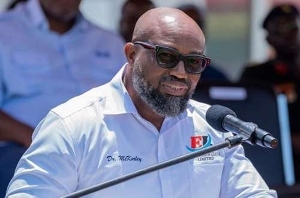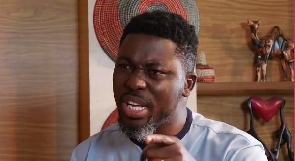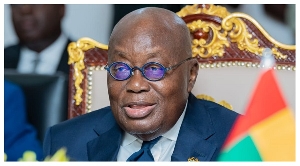Opinions of Sunday, 6 December 2009
Columnist: Aapengnuo, Clement
RE: Rawlings, Kufour deserves The Hague
LTE: Rawlings, Kufour deserves The Hague (Nov.3, 2009)
Dear Editor,
The bottom line of Royal Enoch’s article with the above title (Ghanaweb.com Dec.3, 2009) is that Former President Kufour is responsible for the gruesome killing of Ya-Na Andani Yakubu II and 40 of his elders and according to Former President Rawlings, Kufour should be tried in The Hague for crimes against humanity. This line of argument simply draws us away from the real issues besieging the Dagbon Chieftaincy (Skins) Crisis. At the core of this 50+ year-old Crisis is the struggle for the control of power and resources. The king of Dagbon (Ya Naa) is the sole custodian of Dagbon lands. He holds the lands in trust for the people of Dagbon yet he is not accountable to anyone or system (may be to the ancestors). In the psyche of his people, he has divine status as his appellations indicate; he is the “owner of the universe”, “owner of the grass and tress”, “king of kings”, “the lion”. He is also “father of the orphans and widows”, “trash heap” (Welcomes all) etc. There is an ontological problem here. How do you hold such a person accountable?
Revenue deriving from land sales meant for the skin comes to him. He is responsible for appointing certain chiefs some of who hold positions that are important to the functioning of the traditional administrative systems. Who holds him accountable when he violates laid down procedures for the appointment of certain chiefs? To whom does a Dagomba prince turn when his perceived rights are violated by the Ya Naa? These are systemic deficiencies in the Dagbon traditional system, which must be addressed if lasting peace is to prevail.
The dream of every prince in Dagbon is to become a chief some day. Apart from the pride and prestige in being a chief, chieftaincy is also a source of livelihood for many of these princes in Dagbon. Denying a prince chieftaincy when it is his turn or right without due process, becomes a matter of “live and death”, an existential problem. It becomes a human-rights and justice issue and no longer just a traditional matter. The key question is, whose rights (real or perceived) are violated and what recourse has the person for redress? This is the core of the Dagbon crisis in particular and chieftaincy disputes in Ghana in general.
Using the death of a king to score cheat political points and sow seeds of ethnic division is a crime against humanity. Anyone genuinely interested in the motive for the murder, and the murderers of the King of Dagbon and the 40 others, has to investigate the disbursement of revenues from land sale and the appointment of chiefs in Dagbon in the last 50 years. For lasting peace, Dagombas must first commit themselves to reconciliation (walking together again), then in honesty, truth and love, seek justice, not revenge as the ultimate goal, justice in the sense of a restoration of right relationships. An exclusive Andani or Abudu Ya Naa in Dagbon is not an option. The Abudu and Andani families define chieftaincy in Dagbon and any attempt at exclusion can only lead to violence. The people of Dagbon must workout a system of rotation between the two families with very clear lines of succession and punishment for any breach of the system. The system will include the appointment of chiefs to vacant seats (skins). The elders must lay down very clear principles regarding the sale of land and disbursement of the revenue. The argument that a system exists often comes from beneficiaries of the status quo. Whatever system has been in place has obviously not worked. There is the need for a re-structuring of their traditional system to respond to the realities of the 21st Century. The death of the King of Dagbon is a wake-up call to Dagombas to solve THE 50+ YEAR OLD DAGBON SKIN CRISIS once and for all. As Papa Owusu Ankomah said at the first government attempt to bring the two families together at Akosombo, “if you turn your back yard into a football field, politicians will come and play football there”.
Clement Aapengnuo
Conflict Analyst
George Mason University












